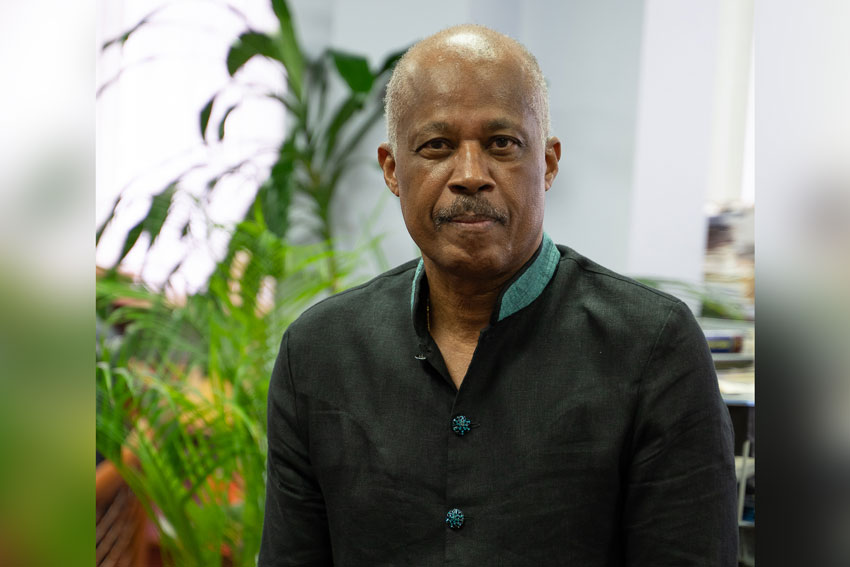Some two weeks after the European Union (EU) blacklisted Barbados as a non-cooperative tax haven, Minister of Industry, International Business, Commerce and Small Business Development Donville Inniss said he still did not know “what the problem is” that led to the country’s blacklisting.
Therefore, Inniss said, in the absence of clarification from the EU, it was difficult to determine what steps Barbados needed to take in order to be removed from the list.
“First of all, you have to know what the problem is that the European Union has. So until that is made clear to us I don’t think I can make a public announcement as to what needs to be done. Up to five o’ clock this evening when I last communicated with the director of international business, we had not received official correspondence from the European Union as to their reason for action,” the minister said on the sidelines of his Christmas party last Friday for his St James South constituency.
Barbados was among four Caribbean Community (CARICOM) countries named by the EU on December 5 in a list of 17 global tax havens.
Also included on the blacklist, which followed ten months of investigations by EU officials, were CARICOM countries Grenada, St Lucia, and Trinidad and Tobago, as well as American Samoa, Bahrain, Guam, South Korea, Macau, Marshall Islands, Mongolia, Namibia, Palau, Panama, Tunisia and the United Arab Emirates.
Those placed on the dubious list were described as not doing enough to crack down on offshore avoidance schemes, and they could lose access to EU funds. Other possible countermeasures will be decided in coming weeks, according to EU officials.
The day following the announcement Inniss had expressed shock over this country’s latest blacklisting, describing the decision as both “unfortunate and unfair”.
He argued then that Barbados was a fully cooperative jurisdiction when it came to taxation matters, and explained that it had made the required commitments to either amend or eradicate its regimes that were not in line with EU specifications by the December 5 deadline.
However, Inniss told journalists at the weekend Christmas party that the dialogue would continue in the days ahead and he anticipated a resolution in the not-too-distant future.
“I am sure that the dialogue continues some time over the next couple of days. We will come a lot closer to resolving this matter and as directed our task is to not just understand what the challenges that you may have with our systems, but more importantly, to ensure that actions are fair and reasonable and that the process for being removed from any list of uncooperative jurisdictions is one that does not have to wait a year. Their own processes allow for a speedy removal from our uncooperative list and so we are not shouting across at one another.
“My approach is to work together with the EU and their representatives on finding a speedy resolution to the issue, but first we have to know from their end what the major issue is,” Inniss reiterated.
CARICOM has voiced strong objection to the EU move, with Secretary General Irwin LaRocque urging France to leverage its influence with a view to stopping the 28-member political and economic union from taking “arbitrary and punitive actions” against the four blacklisted CARICOM states, which, he emphasized, had not been so labelled by the relevant regulatory authorities such as the Financial Action Task Force and the Organisation for Economic Cooperation and Development’s Global Forum.
“This decision by the EU has been based on new and unilaterally-determined criteria, that go beyond the generally accepted international tax transparency and accountability standards which our countries have been diligently meeting over the past several years,” LaRocque said last week as he received France’s new ambassador to the 15-member grouping.
“CARICOM strongly objects to this listing of our member states and calls on the EU to remove our member states from this pernicious list,” he added, while noting that the community stood ready to discuss this matter with the European Council.




